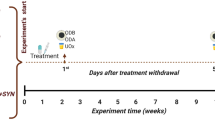Abstract
Both a high dietary oxalate intake and increased intestinal absorption appear to be major causes of elevated urine oxalate, a risk factor for kidney stone formation. A number of recent studies have assessed whether daily ingestion of a probiotic containing oxalate-degrading bacteria could lead to sufficient gut colonization to increase oxalate degradation, thereby reducing urinary oxalate. In contrast, the present study assessed whether simultaneous ingestion of oxalate-degrading probiotic bacteria with a 176 mg oxalate load could lead to decreased urinary oxalate in a population of 11 healthy non-stone formers (8 females, 3 males), aged 21–45 years. The results indicated that both the single and double doses of VSL#3® probiotic solutions were effective in reducing urinary oxalate and estimated oxalate absorption with no significant difference between the two probiotic doses. The timing of the reduction in urinary oxalate suggested a small intestinal and possibly gastric reduction in oxalate absorption. Similar to what had been reported for chronic or daily probiotic ingestion, individuals characterized by high oxalate absorption were most likely to experience clinically significant reductions in urinary oxalate in response to acute probiotic ingestion.

Similar content being viewed by others
References
Liebman M, Al-Wahsh IA (2011) Probiotics and other key determinants of dietary oxalate absorption. Adv Nutr 2:254–260
Robertson WG, Hughes H (1993) Importance of milk hyperoxaluria in the pathogenesis of urolithiasis–new evidence from studies in the Arabian peninsula. Scanning Microsc 7:391–402
Sidhu H, Enatska L, Ogden S, Williams WN, Allison MJ, Peck AB (1997) Evaluating children in the Ukraine for colonization with the intestinal bacterium Oxalobacter formigenes, using a polymerase chain reaction-based detection system. Mol Diag 2:89–97
Sidhu H, Hoppe B, Hesse A, Tenbrock K, Brömme S, Rietschel E, Peck AB (1998) Absence of Oxalobacter formigenes in cystic fibrosis patients: a risk factor for hyperoxaluria. Lancet 352:1026–1029
Kwak C, Kim HK, Kim EC, Choi MS, Kim HH (2003) Urinary oxalate levels and the enteric bacterium Oxalobacter formigenes in patients with calcium oxalate urolithiasis. Eur Urol 44:475–481
Troxel SA, Sidhu H, Kaul P, Low RK (2003) Intestinal Oxalobacter formigenes colonization in calcium oxalate stone formers and its relation to urinary oxalate. J Endourol 17:173–176
Campieri C, Campieri M, Bertuzzi V, Swennen E, Matteuzzi D, Stefoni S, Pirovano F, Centi C, Ulisse S, Famularo G, De Simone C (2001) Reduction of oxaluria after an oral course of lactic acid bacteria at high concentration. Kidney Int 60:1097–1105
Lieske JC, Goldfarb DS, De Simone C, Regnier C (2005) Use of a probiotic to decrease enteric hyperoxaluria. Kidney Int 68:1244–1249
Goldfarb DS, Modersitzki F, Asplin JR (2007) A randomized, controlled trial of lactic acid bacteria for idiopathic hyperoxaluria. Clin J Am Soc Nephrol 2:745–749
Ferraz RR, Marques NC, Froeder L, Menon VB, Siliano PR, Baxmann AC, Heilberg IP (2009) Effects of Lactobacillus casei and Bifidobacterium breve on urinary oxalate excretion in nephrolithiasis patients. Urol Res 37:95–100
Okombo J, Liebman M (2010) Probiotic-induced reduction of gastrointestinal oxalate absorption in healthy subjects. Urol Res 38:169–178
Lieske JC, Tremaine WJ, De Simone C, O’Connor HM, Li X, Bergstralh EJ, Goldfarb DS (2010) Diet, but not oral probiotics, effectively reduces urinary oxalate excretion and calcium oxalate supersaturation. Kidney Int 78:1178–1185
Lustgarten JA, Wenk RE (1972) Simple, rapid, kinetic method for serum creatinine measurement. Clin Chem 18:1419–1422
Tang M, Larson-Meyer DE, Liebman M (2008) Effect of cinnamon and turmeric on urinary oxalate excretion, plasma lipids, and plasma glucose in healthy subjects. Am J Clin Nutr 87:1262–1267
Hodgkinson A (1977) Oxalic acid in biology and medicine. Academic Press, New York
Binder HJ (1974) Intestinal oxalate absorption. Gastroenterology 67:441–446
Hatch M, Freel RW (2005) Intestinal transport of an obdurate anion: oxalate. Urol Res 33:1–18
Holmes RP, Ambrosius WT, Assimos DG (2005) Dietary oxalate loads and renal oxalate handling. J Urol 174:943–947
Federici F, Vitali B, Gotti R, Pasca MR, Gobbi S, Peck AB, Brigidi P (2004) Characterization and heterologous expression of the oxalyl coenzyme A decarboxylase gene from Bifidobacterium lactis. Appl Environ Microbiol 70:5066–5073
Turroni S, Vitali B, Bendazzoli C, Candela M, Gotti R, Federici F, Pirovano F, Brigidi P (2007) Oxalate consumption by lactobacilli: evaluation of oxalyl-CoA transferase activity in Lactobacilli acidophilus. J Appl Microbiol 103:1600–1609
Rabot S, Rafter J, Rijkers GT, Watzl B, Antoine J (2010) Guidance for substantiating the evidence for beneficial effects of probiotics: impact of probiotics on digestive system metabolism. J Nutr 140:677S–689S
Author information
Authors and Affiliations
Corresponding author
Rights and permissions
About this article
Cite this article
Al-Wahsh, I., Wu, Y. & Liebman, M. Acute probiotic ingestion reduces gastrointestinal oxalate absorption in healthy subjects. Urol Res 40, 191–196 (2012). https://doi.org/10.1007/s00240-011-0421-7
Received:
Accepted:
Published:
Issue Date:
DOI: https://doi.org/10.1007/s00240-011-0421-7




